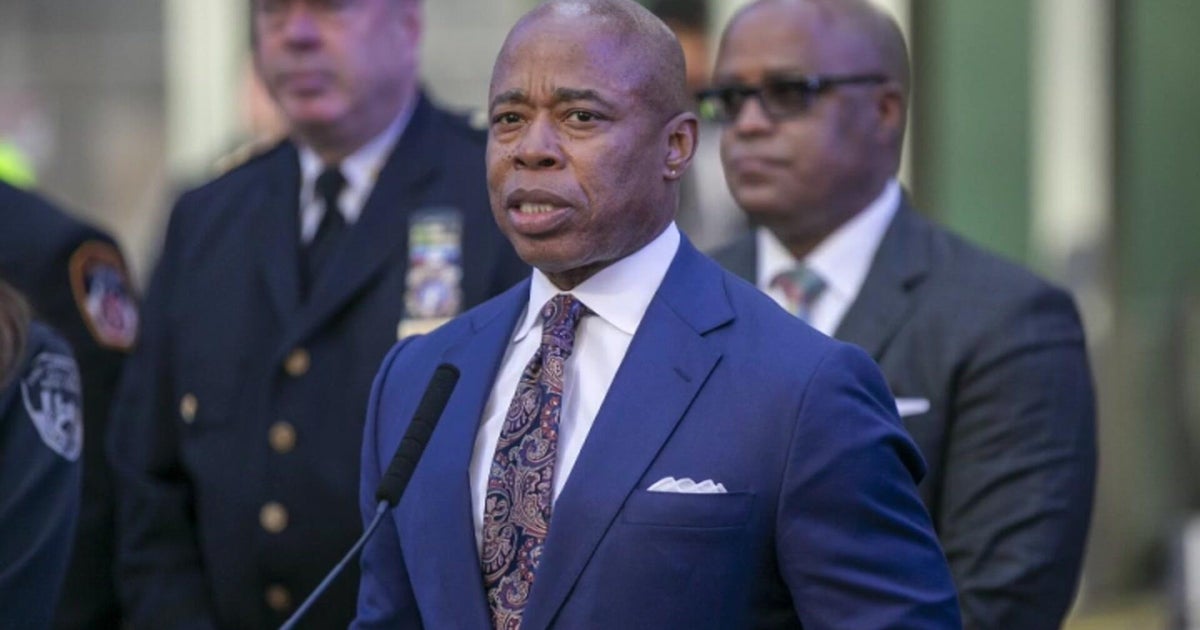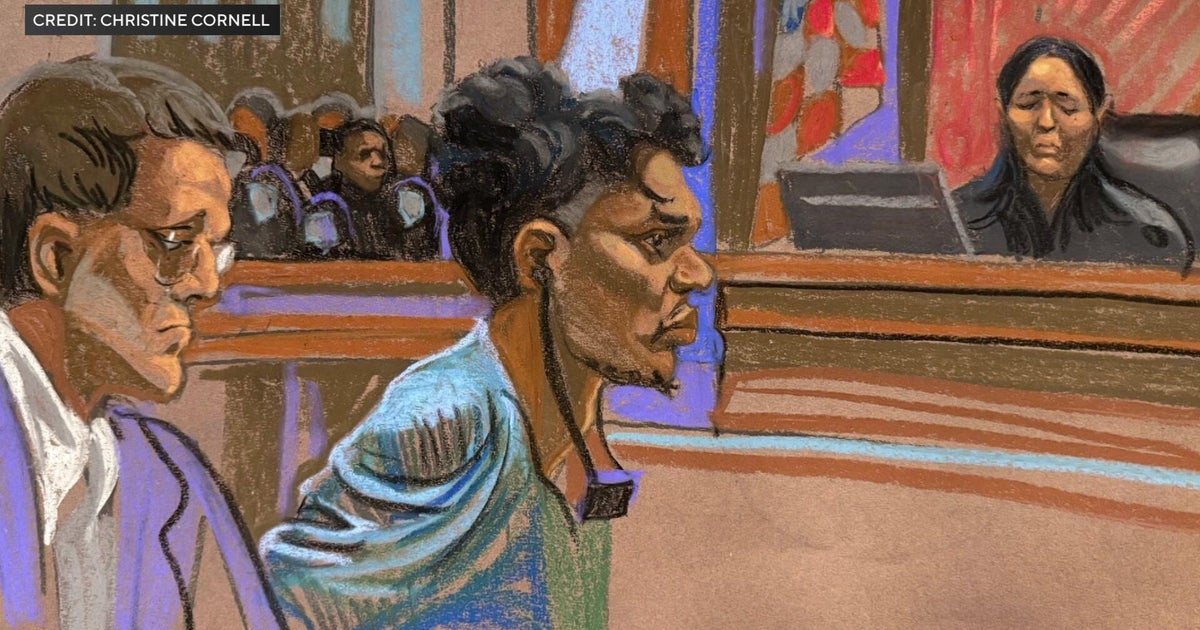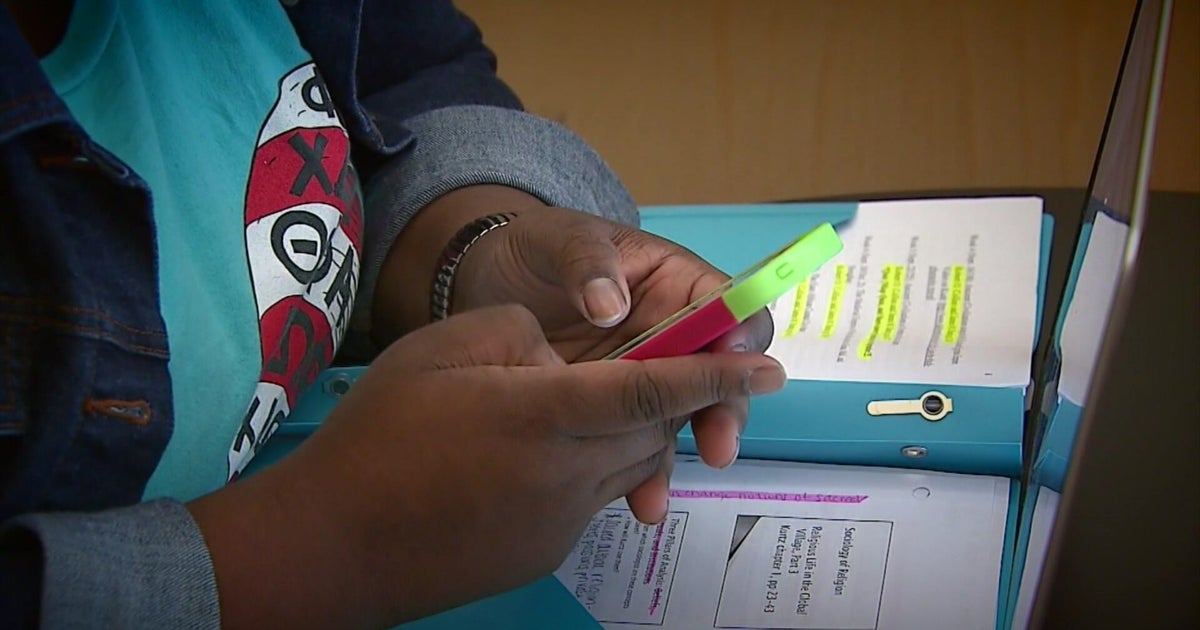Candidate Conversations: Scott Stringer
NEW YORK (CBSNewYork) – CBS2 is holding in-depth conversations with the 2021 New York City mayoral candidates.
We are asking each of them the same questions, so you can compare.
The order was chosen at random.
Here's Marcia Kramer's interview with Democrat Scott Stringer.
Marcia Kramer: From ending gun violence to recovery from the pandemic, the next mayor of New York City will have a lot on their plate. We are speaking with each candidate in an in depth conversation to see where they stand. We are asking each candidate the same questions, so you can compare. Joining me now is candidate Scott Stringer. Scott, good morning, good afternoon. Welcome, and here's the first question. Should you get elected, what are your top three priorities on day one?
Scott Stringer: The first thing we need to do is bring our city's economy back to life. That starts with my small business recovery plan that would put $1 billion directly in the hands of small business owners to restock the shelves, hire workers, pay back rent, and get the stimulus money working for everybody.
But the second priority has to be the health and welfare of our children. As they go back to school they're going to have those mental health issues that occurred during the pandemic. I have two little kids, as you know. They go to public school and I know the challenges they're facing both through this remote learning process, but also coming back to school. So we've got to be ready on day one to meet the challenges of our children.
And if we're ever going to solve homelessness and make a city for everybody, we need to build the affordable housing that we need. This administration built unaffordable affordable housing, and my housing plan will make sure that when we look at the city owned property that taxpayers have, we've got to return that land back to the people. Make sure that we can build the next generation of housing, to start aligning housing policy with the homeless crisis. Moving people out of homeless shelters, moving them into affordable housing and creating once again a city that is united by the fact that everyone can afford to live here and work here.
Kramer: But how do you do that? Do you take some of the hotels and build them into affordable housing? Do you look at vacant land? Where do you find the space in this city to build affordable housing?
Stringer: You could use some of the hotels, but my sense is those hotels will not provide enough units because the city is going to bounce back and tourism is going to come back. What you do is you support my housing plan, which is to take the thousands of vacant parcels of land the city owns and give that land to community based organizations that know how to build the low income housing that we need. We could redirect the 421a subsidy and other buckets of resources, so we can build the units that we need.
Marcia, this is a crisis. Five hundred thousand people are one step away from homelessness. Tonight, 60,000 people, half children, sleep in these dangerous shelters that I've investigated. We need a housing plan that is big and bold. And the plan that I've offered in my details to deliver proposals, is to build this housing. It's specific. I know how to pay for it, and I'm the one with the government experience to get it done.
Kramer: How do you square reducing the size of the police budget, which the city has already done, with a need to keep the city safe and to end gun violence?
Stringer: Look, as a kid who grew up in Washington Heights in the 1970s, when there were 2,000 murders a year, I remember those times. And I remember my mother saying to me "Always sit in the conductor car when you get on the train, the A train." Because people were afraid. I grew up in that era, so I don't want to bring our city back to that moment. But what I want to do is have multiple impact on crime.
First, we have to up the clearance rates. Right now we're only making 26% of arrests. That's the lowest it's been in a very long time. Second, we've got to make sure we're redirecting NYPD funding to prevent crime from happening, meaning we've got to give kids summer jobs and after-school programs. We need violence interrupters in our communities so we can work with kids, so they stay away from the gangs.
You have to recognize that the calls to 911 right now, 40% of them are not for crimes in progress, they're for mental health issues or wellness issues. I want to redirect mental health professionals to respond to those calls so the police can do the work they need to do, fighting violent crime.
Kramer: But so far those things have been tried and they haven't worked. Why will your ideas, which are the same that the mayor has been proposing, why will yours work when his hasn't?
Stringer: First of all, I know how to manage this city, and I'm going to manage the hell out of this city. We need somebody who has a proven record getting things done, and you can't compare me to the de Blasio administration. There are other candidates who worked for Bill de Blasio. I was the counterweight. So for me, my plan is a plan that has looked at national programs, local programs. We took the best of what's out there, and I think we can have a public safety plan that keeps New Yorkers safe, but also keeps kids and the criminal justice system apart.
Kramer: So do you think the budget cuts exacerbated the problems we're seeing now?
Stringer: Well, the budget cuts - we didn't have budget cuts. What we had was a budget crisis.
Kramer: But we cut the budget by $1 billion dollars?
Stringer: What I had suggested to the mayor, and he finally agreed, that the budget savings had to be in efficiencies. He never cut the budget in seven years he was mayor. He never put money aside that could meet this challenge. So what I said to him was look for the outside contracts, the waste, the bureaucracy. Cut that. And after a year of fighting him, he was able to get the budget somewhere where that has to be.
I'm going to continue that as a mayor, because as the chief financial officer of the city, I understand where the waste is, I understand where the fat in the budget has always existed. Look, we don't have to cut summer jobs for kids. That's what he proposed and we fought him and won. We don't have to cut union workers who everyday went out and risked their lives during the pandemic. What he had to do, and what we got him to do, was find the waste, look at the efficiencies. That's what mayors have to do, and that's what the next mayor is going to have to do as well.
Kramer: So if you get elected are you going to cut the size of the NYPD budget?
Stringer: I'm going to take away the money that's not working in the NYPD budget. I've identified $1 billion over four years that can be reallocated to the programs that would make it possible for kids to have the interrupter programs, the violence programs, to make sure that we keep kids separated from gang violence. There are so many programs in this country, and in this city, that are working, but we don't bring them up to scale.
But also we've got to start in the schools. We need more health professionals after the pandemic. So many of our teenagers are committing suicide. We need more afterschool for our children, so they don't end up in the criminal justice system. These are issues I have fought for my entire career, for 30 years, and I know this bureaucracy inside and out.
Kramer: Alexandria Ocasio-Cortez says that one her prerequisites for endorsing candidates is their agreement to cut $3 billion from the NYPD budget. Do you want her endorsement?
Stringer: I think the congresswoman is one of the most talented representatives in this country, and I would be proud to have her endorsement, but -
Kramer: Does that mean you'd cut the budget by $3 billion?
Stringer: I'm not going to cut the police budget by anywhere near $3 billion.
Kramer: How much are you going to cut it?
Stringer: Well, look my proposal right now is a four year program, which is a base, to redirect programs. There's a lot of overtime that has to be capped. There's a lot of wasted spending. As comptroller, I've begun to look at those numbers. I was the first to say we could move money to programs that work, and I'll continue to look at that. As we start redirecting mental health resources and other programs to fighting crime, then we might not need to have the kind of police force that has been sitting out there but not meeting the challenges of the clearance rates and the challenges policing in communities have faced.
We do have a national movement, Black Lives, that exposed some of the over-policing tactics that have led to terrible tragedy. We've seen that in New York City, and I think we need to have a mayor who can keep the city safe but also make sure that social justice is paramount when it comes to working with diverse communities.
Kramer: The police commissioner says that bail reform needs to be changed so the judges feel they have to find a way to keep people accused of terrible crimes in jail. Do you agree that bail reform has gone too far?
Stringer: I don't. I do believe that we cannot simply decide who languishes in jail based on the money that they make, and bail reform is about making sure that people will be there for their court appearances. But some people have a lot of money to post bail, and some people don't, and you have to have one standard in the criminal justice system.
Kramer: But do you think it should be scaled back so people accused of really bad crimes are held on bail?
Stringer: Well, there always - there is judicial discretion to hold people, and that exists right now for dangerous people. But what's really happening in this city is that the poorest people in the city languish in jail. You know, if you look at Rikers, it's the largest mental health facility. Thousands of people are there, Marcia, just because of technical bail violations. They really need to be in hospital, they need to really get need to get services and medicine. And I think we need a mayor who's going to be very focused on finding a way to meet these multiple needs that people have, and also bring the city together.
Kramer: So the homeless problem has really gotten out of control in New York City. I wonder what your actual solution is? But also, do you think that homeless shelters should be put in residential neighborhoods where people are opposed to them?
Stringer: Well, let me say that, as I mentioned earlier, we have a homeless crisis that has only gotten worse under this administration. We used to spend $1.6 billion managing the homeless crisis. Today we're spending $3.2 billion. What are we getting for it? I did an audit of a shelter where there were little children, little babies 0-3, living in the shelters with their families. Their cribs had mice droppings. The cribs were next to radiators. What kind of society is this? We cannot continue to do that.
So what we need to do is align the housing crisis with the homeless crisis. We need to build low income housing. Thirty percent of people in shelter, work. They have jobs. They just can't get an apartment. We need to think bold, like LaGuardia thought bold. Mayor LaGuardia, when he built public housing, or when Ed Koch put together a housing plan that gave buildings back to community based organizations with a subsidy. I have a specific plan how to get that started on day one.
We've got to solve the homeless crisis. And when we can't, yes, every community has to do their share. And, you know, I was a borough president, I was an Upper West Side Assembly member. I listened to the concerns residents had about homeless shelters and communities. But I solved the problems. We work with agencies, we work with community based organizations. You know, mayor is about doing the hard work, the experienced work, of making sure communities are heard, but that we also offer services to fellow New Yorkers who are suffering and who are having hard times.
Kramer: People who send their kids to charter schools really love them. I wonder what your position on charter schools is, number one, and two, how would you deal with the Jewish parochial schools who often don't provide enough secular education?
Stringer: Well, look, I believe that every, every yeshiva should have robust secular education that meets the standards of the law. And that should be maintained. You know, my kids, before they went to public school, we made sure they had an early Jewish education at their synagogue, and people certainly should have those options. I do think that the job of the mayor is to make sure that we are constantly working with communities to make sure that religious instruction and curriculum that will teach kids to read and write and the history of the world, that that's also happening as well.
Kramer: How about charter schools?
Stringer: We have many different schools, we have charter schools, we have private schools. The schools that seem to be in the most trouble right now are public schools, the 1.1 million school children who do not get equal education under so many standards.
We have one tier of education in public schools, where if parents have resources, like my wife and I have resources, our kids get a different education than other kids in East New York, or the South Bronx. The job of mayor is not just to watch out for your own kids. It's really to watch out for all the children. And that is why I think we need to triple the number of kids who have subsidized childcare. We now have money coming out of Washington to do just that.
Next part of my plan is to put two teachers in every classroom, K to five, because that's what the private schools and the charter schools do. And if you're a wealthy parent in a wealthy school district, you can get more teaching resources in the classrooms. If we want to make people, our kids have an equal education, this is how you do it.
And lastly, we cannot have two standards of afterschool. If my kid can get chess and robotics and athletics, then every child must have the same options, and it can't be doled out based on a parent's wealth. We're gonna stop that when I'm mayor, and every child is going to have the same resources in the classrooms, same resources afterschool. And I've identified specific resources and money on how to pay for each of these ideas. So this is not just a false campaign promise, where a candidate who has no government experience just runs a list of programs that will never get paid for.
Kramer: So but what would you do in terms of charter schools? Would you provide them the space in some of the city owned schools that they've asked for? I know there's been a problem with Mayor de Blasio doing that with some of the schools. What would your policy be?
Stringer: Well, right now, as far as we can tell, they have space, that's the law, they have space in the schools. But we also have to make sure that within that paradigm that we also have resources for the kids in the public schools. And that's the job of, you know, the mayor and the chancellor.
Kramer: So what major measures would you put in place if you get elected to ensure there's no sexual harassment in your administration?
Stringer: I have one of the most stringent sexual harassment protocols in my office. We have HR personnel and people who make sure that there are no situations like that in my office, and I've been in government for close to 30 years. And I'm proud to say that we have had an office that has been very honorable, very forthright, and have a zero tolerance policy for any of that.
Kramer: Any examples of what you would do?
Stringer: We would continue to make sure that there's HR leadership in every office, making sure that there's curriculum, making sure people are having discussions about any possible hint of sexual harassment in the workplace. And you can be sure based on my record in government, that we will have a resource that will be second to none in this nation.
Kramer: So if you could give instruction to your supporters, who would you ask them to choose as number two in ranked choice voting?
Stringer: Look, I first got to get my supporters to get me number ones. I do love ranked choice voting, because it's a way to campaign in every neighborhood. It means that you have to build consensus. So I would say to everybody who's listening, pick the candidates that you think merit first place, second place and beyond. But I'm trying to get the most first place votes. I want to be the mayor. And I recognize that if I'm not first, perhaps someone will put me second. But that's really the job of the people in the streets to make their informed decisions based on interviews like this, and hearing about the campaign.
Kramer: Oh, Scott, just pick one.
Stringer: No chance.
Kramer: OK. So we've come to this section of our program that we like to call "in one word." So I'm going to ask you to respond to these in one word. First of all, what do you consider your - one word, that's it - what do you consider your best leadership quality?
Stringer: Passion.
Kramer: In one word, friends and family would describe you as?
Stringer: Dad.
Kramer: Dad? OK. What's your favorite comfort food?
Stringer: My favorite comfort food? Pizza.
Kramer: OK, what's a unique skill or talent?
Stringer: Listening.
Kramer: OK, you'd like to do this when faced with a difficult situation?
Stringer: Act decisively.
Kramer: Scott, thank you so much for joining us today.
Stringer: Thank you, Marcia. Good to see you. Thanks.
You can watch our New York City mayoral debate with leading contenders on CBSN New York and on CBS2 hosted by Kramer and Maurice Dubois on Thursday, June 10 at 7 p.m.



